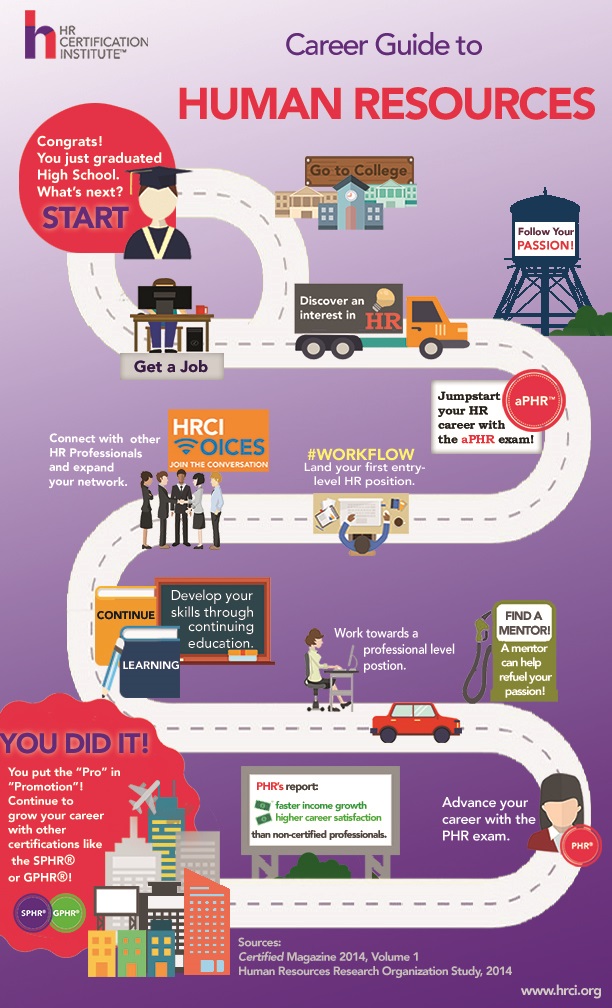Do you want to become successful in the field of Human Resources?
The Career Guide to HR infographic from the HR Certification Institute® (HRCI®) is here to help! This infographic breaks down the common steps that anyone pursuing a career as an HR professional should tackle. There is no single method to achieving success in the HR profession, especially since HR has various functions even within a single organization. Choose a route that works best for you and don’t be afraid to ask for help along the way.
Every HR professional has their own HR story. HRCI’s very own Human Resource Director, Sonja Henderson, PHR took time to share hers with you!
• What led you to pursue a career in HR?
“I was originally trying to get a job in public relations and this couple that was helping were going out of the country for vacation. This couple that owned a temp agency didn’t want to let me go, so they helped me get a temp job with another company until they returned. The company was small so I ended up doing a little bit of everything while being an office assistant like payroll and reviewing resumes. Even before that I was working at Hecht’s and had an assignment from my professor to give an Informational Interview to a working professional. I was just going to go to a radio station, but my professor said ‘no, I think you should try something different.’ So I interviewed an HR person at Hecht’s and that’s where I first kind of found out about HR.”
• What keeps you motivated as you keep up with your day-to-day tasks?
“HR has several functions, that’s why I like it. There’s compensation, EEO, Human Relation Commissions, mediator […] always something new to learn or experience. No job is exactly like another. For example, what you do as an HR manager in one company is not the same thing you’d do at another. If you ever get bored in one area of HR you can always focus on another area.”
• Do you have any dislikes about working in HR?
“The common misconception of HR is that it is simple. Employees and managers sometimes don’t understand that it’s not just about advocating for them, it’s also about making sure the employer is following proper guidelines and laws. It’s about doing what’s best for the company as a whole not just individuals. Another thing is that all HR jobs are not interactive. You have to find what works best for you and where you thrive at each level.”
• What are some positions you suggest entry-level HR professionals to apply to?
“Besides an HR assistant position, entry-level HR professionals should look for recruiting jobs that opens you to a lot. Also compensation jobs, people tend to steer away from those because of numbers. HR people hate numbers but it’s really important. Working in EEO usually gives people a completely different scope especially after dealing with investigations.”
• If you could give one piece of advice to your younger self or individuals interested in a career in HR, what would it be?
“Be open and willing to touch every and anything in HR. Knowing something about every function will really help you in the long run. Always keep abreast of what’s going on and invest in yourself. Go to events and conferences even when your company isn’t paying for it.”

